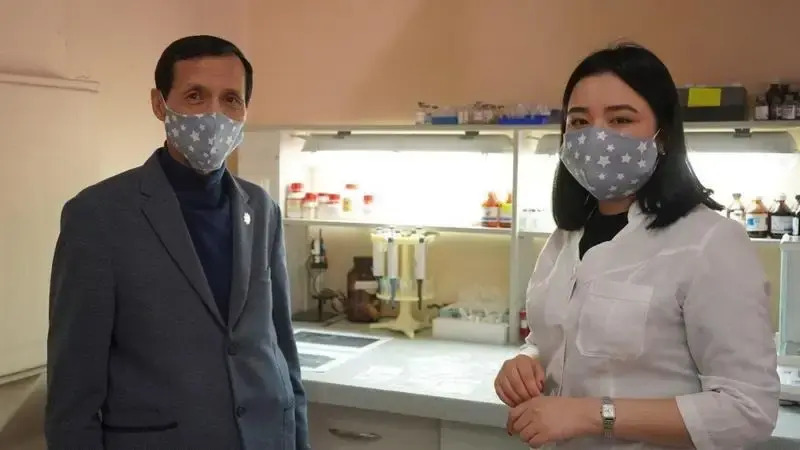ASTANA – After nearly two years of developing an effective technology for producing oxidation-resistant silver nanoparticles, scientists from Karaganda Buketov University and Kazakhstan’s National Academy of Sciences have made antiviral masks with relatively high antibacterial and antifungal properties, Kazinform reported on April 11.

Photo credit: gov.kz
Viral respiratory infections are the most common diseases worldwide. They are caused by over 200 types of viruses, and sometimes by several types of pathogens simultaneously.
However, highly effective antiviral drugs are still in development. Most existing drugs only suppress virus replication without eradicating them, leaving room for mutation and drug resistance.
Addressing this challenge, Kazakh scientists used silver nanoparticles to make masks more effective, considering that silver compounds have long been recognized in folk medicine as antibacterial and antiviral agents.
However, silver nanoparticles can lose their effectiveness when interacting with oxygen and hydrogen sulfide in the air. A key aspect of their innovation is encapsulating the silver nanoparticles in polysaccharides before applying them to fabric materials.
Trials for antiviral efficacy, including against coronavirus, have yet to be carried out, but scientists are optimistic about their potential effectiveness. Moreover, these masks might possess self-cleaning properties.
